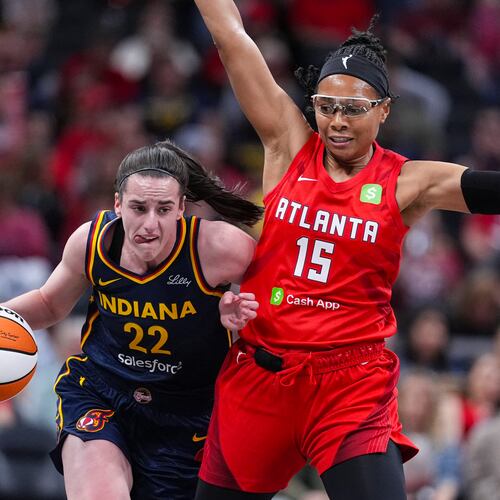Mark Richt’s decision to drop a Georgia football recruit for misbehaving on Twitter didn’t surprise many high school coaches across metro Atlanta.
“I think it’s an excellent policy, and I wish there were more stories like this to drive the point home to the kids,” Central Gwinnett coach Todd Wofford said.
Social-media platforms such as Twitter and Facebook are extremely popular among recruits. It gives the prospects a chance to express their thoughts and to interact with fans, while providing the colleges an opportunity to monitor a kid’s personality and behavior.
Richt, who has been criticized for the off-the-field behavior of several of his players since the end of last season, pointed out to reporters last week that he dropped a kid committed to Georgia last year because of character issues. He declined to publicly identify the recruit, but explained that it was connected to Twitter.
“He had some stuff on social media that we didn’t like — we keep an eye on all that,” Richt said.
“We told (the kid, and) we told his coach (that) we don’t condone that, and he was a guy who was already committed to Georgia. And he persisted. Well, actually he changed his (Twitter) handle and continued to do that kind of thing thinking we wouldn’t find out. And we found out about it, and we cut him.
“We rescinded that offer to him because if he’s not going to do what we say to do at that point then what’s going to make us feel like he’s going to do it when he gets here. There’s definitely a vetting process that we’re very serious about.”
Richt’s actions didn’t surprise Tucker coach Bryan Lamar, who saw two of his players sign with Georgia in February.
“Sometimes, it’s hard to judge that type of situation because you don’t know all the details — maybe a college will say that to get out of a commit?” Lamar said.
“But it seems pretty clear what happened here. Georgia told the kid to stop it, and the kid opened up another Twitter account to do the same stuff. In that case, I’m with it. Get rid of him.
“If you can’t stop doing little things like that that embarrass the school on social media, that’s a problem. How can they trust you when you get on campus? That’s a big-time red flag. And you know Georgia is under the microscope with their (player) behavior anyways, so I don’t have a problem with it.”
Sandy Creek coach Chip Walker lectures his players every year about appropriate conduct on social media. He also makes sure the team is aware of situations like what happened recently at Georgia, along with Penn State.
A couple of weeks ago, a Penn State assistant tweeted that he “dropped another prospect (due) to his social media presence,” while adding, “actually glad I got to see the ‘real’ person before we offered him.”
Said Walker, “I’m sure many more situations like this happen without the public fanfare.
“We tell our kids that things they put on social media are directly tied to their character, even if it’s a retweet. I completely understand people not wanting to recruit kids that have potential to have character issues down the road.
“I agree with coach Richt’s stance, and I think it shows that he wants high-character people to properly represent the University of Georgia. We tell our kids the same thing about representing Sandy Creek and their family the right way.”
Rusty Mansell is a recruiting analyst for 247Sports.com who also runs several high-profile prospect camps across the state. He makes it a point to remind kids that colleges are tracking them on Twitter and Facebook.
“I tell the kids, ‘Colleges aren’t looking for a reason to offer you; they are looking for a reason to not offer you.’ And social media, as much as game tape, is a way to separate kids on your board.
“I don’t know how else kids are going to understand that. But colleges make tough decisions at positions when they can only take so many. If you’ve got two players who you think are at the same level, and you’ve got concerns about the character of one of the kids based on his history on social media, it’s a no-brainer. You’re not taking that kid.”
About the Author
Keep Reading
The Latest
Featured


